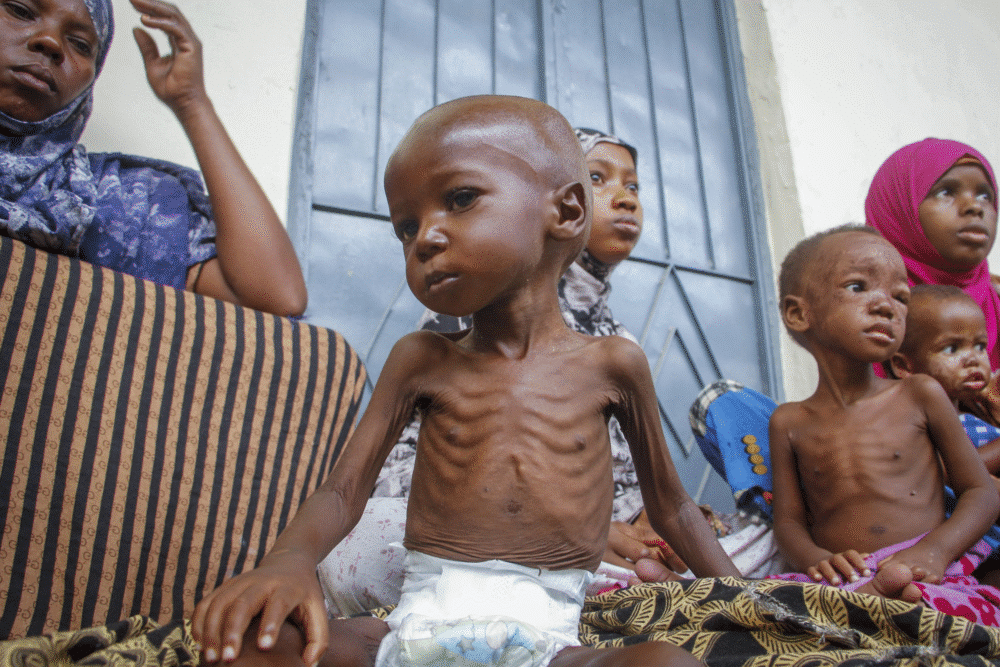HEALTH
Malnutrition: Over 35% of Nigerian Children Affected, Threatening National Future – NARD

Nigeria is facing a worsening public health catastrophe, with over 35 per cent of all children under the age of five now affected by malnutrition, according to a stark report released by the National Association of Resident Doctors (NARD). Described by the professional body as a “critical public health challenge,” this pervasive nutritional deficit is not only driving high child mortality rates but is also directly undermining the nation’s future productivity and human capital development.
Dependable NG reports that the scale of the crisis has reached a point where the Federal Government officially deemed it a “national emergency” in August. The economic damage alone is staggering, with the country losing over $1.5 billion annually due to the reduced productivity and long-term health consequences linked to the malnutrition crisis, a figure confirmed by Uju Rochas-Anwuka, Special Assistant to the President on Public Health. This massive annual loss highlights how the crisis undermines the very foundation of national development.
Impact Beyond Hunger: Cognitive and Economic Toll
The consequences of widespread malnutrition extend far beyond mere physical health. NARD, in a public post on X, stressed that the condition “impacts cognitive development, disease susceptibility, and national productivity.” This early-life deprivation in essential nutrients can cause irreversible developmental damage, leading to lower intellectual potential, reduced educational attainment, and a less competitive workforce in adulthood, thereby perpetuating the cycle of poverty and poor economic outcomes.
The gravity of the situation was earlier underscored by Vice President Kashim Shettima, who warned in July that nearly 40 per cent of children under five are being deprived by malnutrition. Speaking at a National Summit on Nutrition and Food Security in Abuja, the Vice President called the situation “a national crisis” and emphasised that the challenge goes beyond simple hunger, touching on issues of access, affordability, and the ability of the populace to consume a diet that meets fundamental nutritional needs.
Interventions and Humanitarian Despair
To combat this emergency, NARD cited several proven interventions at the core of the medical response. These include the critical distribution of Ready-to-Use Therapeutic Food (RUTF), the systematic implementation of Community-Based Management of Acute Malnutrition (CMAM) programmes, and widespread Infant and Young Child Feeding (IYCF) counselling. Research consistently shows these comprehensive strategies significantly improve recovery rates for severely malnourished children and boost overall survival.
“NARD members are at the forefront of implementing and researching malnutrition interventions across Nigeria,” the association stated, urging government and stakeholders to support sustainable nutritional programmes to protect children’s health nationwide. However, the humanitarian front paints a grim picture of escalating suffering.
In late July, Doctors Without Borders (MSF) released a shocking report confirming that over 600 malnourished children had died across various facilities in northern Nigeria in just six months. The charity further noted that cases of the most severe forms of malnutrition—Acute Malnutrition—had jumped by a staggering 208 per cent between January and June compared to the previous year. MSF cited a crippling mix of reduced foreign aid, record-high living costs that push basic food staples out of reach for poor families, and the pervasive disruption caused by insurgency and insecurity as the major contributing factors to this unacceptable death toll.
The combined warnings from medical professionals, humanitarian agencies, and the highest levels of government make it unequivocally clear: the malnutrition crisis is an immediate threat requiring a dramatic and sustained increase in funding and coordinated action to safeguard a generation of Nigerian children.
